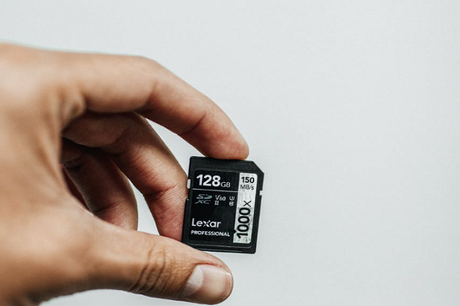SD cards are an important component of digital photography. It is a storage accessory that records the snapped image taken with the digital camera. Once you take photos, the SD card becomes a crucial part of your camera as it is responsible for transferring images safely back into your computer.
Habits To Follow To Avoid Memory Card Problems

SD cards are square or rectangular in shape that slots into your camera to read/write each image file it creates. There are various SD Cards available in the market to purchase, depending upon the built to suit different needs, camera models and budgets. But nothing comes for life, having issues with memory cards is nothing new.
On a beautiful day, you wish to see the photos by inserting your camera SD card in your computer, but to your dismay, you only see the notification hinting the card error or worse, the card is empty and devoid of any recollection of your captured memories.
Therefore, we can conclude that, just like any type of technology, anything can go wrong with your SD cards. SD cards are a fantastic piece of tech, but they do require extensive care. Therefore, here are some tips to avoid SD card problems.
You get what you pay for; therefore, a cheap SD card can compromise your photography and other files. So, if you are willing to protect your digital data, invest in a quality SD card and reader.
Although the function of a reader is to read the card, yet it can be damaged due to physical factors. If you want to avoid issues with your card, purchase the reader from the same manufacturer as your card.
Besides, steer away from deals that look "too good to be true" since there are people out there ready to sell anything for enhanced profits.
Once you have bought a new SD card, it is ready to read/write plenty of data, but make sure that your SD card is formatted in the camera first.
Formatting the SD card in the same device is important since it can minimize the likelihood of jumbling latest images with lingering data left on the card from past shoots. Format option in your camera will clear the card for storing new files.
Switching your SD card between various devices can increase the chances of its corruption. It happens because different cameras have different filing system requirements or architecture, so interchanging them can lead to sd cards data failure.
If you want to change the equipment, then you must format it before using it or buying a new SD card is the safest way out.
To minimize the risk of data corruption or deletion, you must remove your SD card once your camera is off. If you remove it while the camera is still on, it can interrupt the writing process and potentially corrupt your snapshots.
It may sound counter-intuitive that if there is still some memory in it, why shouldn't you use it? But the reason is, just like your maxed out hard drives, a card nearing capacity can result in slow processing and this can affect your digital files.
To avoid such issues, invest in an expanded storage capacity SD card and keep an eye on the image count. The storage should not exceed more than 90%.
The battery of your camera is as important as the SD card inserted in it so don't skimp on batteries.
If you push your camera to the limit where battery is draining, chances arethey will exhaust at the exact moment your camera is writing to your memory card which can cause sd card data corruption requiring you to hire a data recovery firm.
To avoid this scenario, ensure that your camera's battery is charged before you put in your SD card.
Physical factors such as air, dust, water and static electricity can cause damaging effects on your SD card. Even the smallest static particles can destroy your storage cards.
Avoid taking your SD cards for granted by throwing them in grumpy pockets or bags. If you wish to enhance their life, keep them well-protected.

